
(Image: Olga Miltsova)
On a scale of 1-10, how productive are you?
No matter how productive you are, there are always ways to increase your output. As a results-oriented person, I’m very passionate about increasing my output. I’m always experimenting with different methods, different systems to get things done. For the methods that work, I keep them; for those that don’t, I discard them. In the end, what I have are the best methods that really get things done.
In this post, I’ve listed 50 ideas to increase your productivity. Different ideas work in different contexts, so pick the ones that apply to you most now. I often coach my clients on these tips and their productivity increases tremendously after implementing them. Let’s go!
- Plan your day in the morning. Before you start your day, write out a list of things you want to get done. Then, rank them by priority, and allocate a time for each task. Then as you go about your day, use this list to guide you.
- Get the big rocks in. Big rocks are your Quadrant 2 tasks – the important but non-urgent tasks. When big rocks are in place, you can easily get the small rocks, gravel, sand, and water into the jar. Know your big rocks and work on them each day.
- Hardest task first. Within your Quadrant 2 tasks, work on the hardest one when you wake up in the morning. With that out of the way, everything else becomes a breeze.
- Single-task. If you are doing something that requires a high level of brain work, focus on doing it one at a time. Don’t try to multi-task and get nothing done in the process. E.g. When I’m writing articles, I will focus solely on writing articles since it requires deep thinking.
- Multi-task. For low-level tasks that do not require much brain work. E.g. If you are ironing your clothes, you can fit in other tasks like listening to podcasts.
- Ditch the unimportant. If the task is a nice-to-do and not a need-to-do, consider removing it. Why waste your time doing something that’s not important? I’m constantly evaluating things I do to ensure that they absolutely need to be done.
- Create a 80/20 list. While tip #1 is about creating a quick list of things to be done for the day, you should have a master to-do list that tracks all the things you need to get done, be it now, next week, or in the future. I recommend creating an 80/20 list, with your to-dos classified into two columns: one with the 20% of your tasks that make the most impact (called 20% high-value tasks), and another with the remainder of your tasks that make the least impact (called 80% low-value tasks). Each day, focus on your 20% high-value tasks.
I share more in Day 8: 80/20 To-Do List in Live a Better Life in 30 Days, which contains 29 other tasks to live a better life.

(Image: Julie Jordan Scott)
- Have a do-later list. Throughout the day, there will be many things that demand your attention. There will always be firefighting tasks, so work on them only if they are truly urgent and important. Otherwise, put them at the end of your daily to-do list (or create a “do later” column) and do them when you’re done with your priority tasks.
- Create your productivity system. Earlier, I had a reader ask me for recommendations on a good productivity system to increase his output. Personally, I’ve tried Asana, Basecamp, Trello, Google Docs, etc. — and my conclusion is, there is no one system that works for everyone. The key is to experiment and create a system that works best for you. Read more: The Best Productivity System There Is
- Effective->Efficient. Be effective first, then efficient. Being effective means doing the tasks that matter. Being efficient means delivering higher output in less time. There’s no point in being efficient if you’re working on tasks with no value. Read: Be the Master of Your Time
- Quit procrastinating. Procrastination is a huge waster. Think of all the things you can accomplish if you never procrastinate from now on! At the same time, procrastination is merely a symptom, not the problem. Work on tackling the underlying roots of procrastination. Read: How To Overcome Procrastination (series)
- Use productivity apps. There are many tools that improve productivity. Many are just clutter, but there are some that are game changers in improving work productivity. For me, I use aText to type faster; Google Keep to sync my to-dos across my laptop and phone; and Notepad++ for editing code. Here’s a list of my favorite freeware.
- Upgrade your tools. Ideally, your tools should enable you, not slow you down. If they’re slowing you down, then upgrade them. Use a computer with a good processing speed, and have a fast internet connection. I’m a firm believer in spending more (within your budget) to get better performance, particularly when the tool is integral to your work. I recently invested in a lightweight laptop as I’m often on the move, and it has been a great booster to my productivity. Read: Upgrade Your Tools
- Meditate. It clears the mind, calms the soul, and helps you focus on what you are doing. Cultivate a regular/daily meditation habit and see your productivity soar. Read: How To Meditate in 5 Simple Steps
- Wake up early. Start your day ahead of others. It helps you work on your first task of the day in peace (without the hustle and bustle of the world). Because you are a step ahead, you will feel especially good and motivated to run fast to keep your lead. Read: Why I Wake Up Early
- Brain dump. There are times when we feel frustrated and our productivity takes a hit as we cannot focus easily. For these times, I do an exercise called brain dumping to clear out distracting thoughts — it gets me back into the right mental state. Read more: Increase Your Mental Clarity in 15 Minutes
- Practice 80/20. The 80/20 rule refers to the phenomenon where 20% of causes lead to 80% of the results. Focus on the 20% of the things that matter. Read my 3-part series The 80/20 Rule for more on the 80/20 rule and how to implement it in your life.
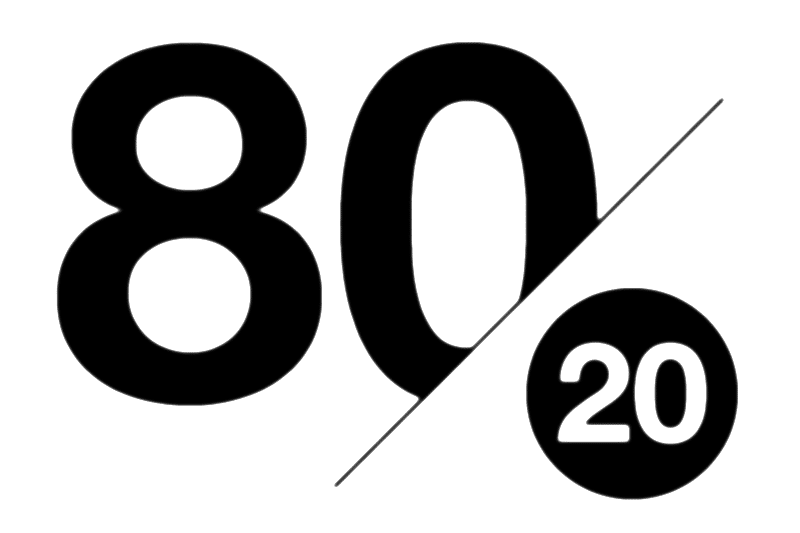
(Image: Personal Excellence)
- Stop being a perfectionist. A little mistake here and there is okay. Stop being a perfectionist and stop wasting time perfecting little things. Your big rocks await. Read: How To Overcome Perfectionism (series)
- Recognize when you’ve reached diminishing returns. Diminishing returns refer to reduced gains in a task even when we put in the exact same input (time, effort). In all tasks and activities, there is always a point of diminishing returns — when it’s no longer as beneficial or rewarding to continue working on it. Be aware and stop when you reach this point. Read: The Law of Diminishing Returns
- Be organized. Having everything kept in an organized fashion makes it easier to do your work. Have a good filing system for your documents (both digital and hard copy) so you can retrieve what you want easily.
- Automate. Many of the earlier tips are on streamlining — removing the unimportant and focusing on the important. After you streamline, the next step is to automate. What personal or work tasks can you automate? Personally, I use Photoshop to batch resize my pictures, email filters to sort my mail, and a regex search tool to quickly edit site data. For my personal tasks, I automate my bill, tax, and rent payments.
- Delegate. If the work is something that needs to be done but (1) isn’t the best use of your time and (2) cannot be automated, then delegate where possible. Hire and outsource if money isn’t an issue. These days, you can get professional work, such as design and video editing, done at a reasonable price. Try Fiverr and Upwork. Pay for a premium service or tool if it can save you time.
- Remove distractions / time wasters. Distractions exist all around us – Facebook, Twitter, TV, radio, mobile, etc. Recognize your distractors and get rid of them before you work. I used to do my work and use a chat messenger at the same time, then realized that I could never get any high-level work done. Now I just don’t use chat apps when working. When I’m doing deep writing, I also hide the taskbar of my desktop and switch to full-screen mode so I can focus on my words.
- Master your skills. To get your work done well and fast, you need to first master your skills. In gaming terms, level up. E.g. If you are a photographer, you can’t take the best photos if you don’t master your tools and photography skills. Investing time to train, learn, and read tutorials, specifically for skills pertaining to your core work, will help. Read: Skills Development
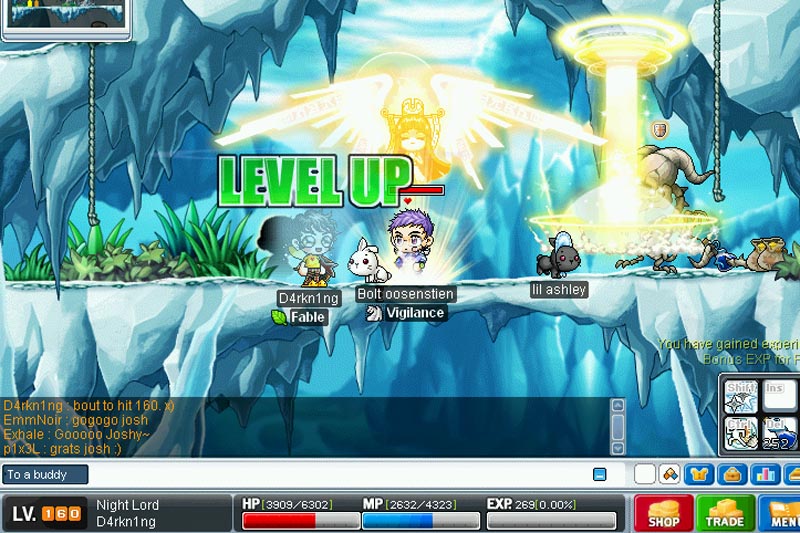
(Image: darkning)
- Understand your productivity peaks and troughs. All of us have times when we are more productive. Identify these times and schedule the toughest work to be done during then. For the other times, just slot in the easier or low-level tasks.
- Do it the most enjoyable way. Find the most enjoyable manner to get things done and you will get more work done than any other method. E.g. If you’re a writer and you like to write while sitting on the bed, then do that. If you feel like doing Task C first rather than Task A, then do that.
- Just do it. Stop finding excuses and just do it. Within five minutes into the task, the momentum will build up.
- Rest. A good sleep perks me up for whatever is next. If you’re tired, just go and rest. You’ll wake up more energized and ready to go.
- Learn from the best (in your field). Identify the people who are the best in what you want to do. Learn from them, understand their methods, and model their behaviors. This will cut short your learning curve by a big chunk. Read: Be a Better Me in 30 Days, Day 16: Seek Advice From Someone
- Learn from the best (in other fields). Look for the best practices in other fields. Apply them to what you are doing now. Many best practices can actually be cross-applied to different places, also known as the Medici-Effect.
- Track and review. What gets tracked gets improved. When you track something, you get full clarity of how it’s doing. Set a target. Track your performance. If you fall short of your expectations, evaluate how you can improve next time. If you meet your target, see how you can perform better next time.
- Create your life handbook. A life handbook is something I started in 2007, and it’s a book where you store your purpose, long-term goals, short-term goals, and life plans. It’s a one-stop document that you use to live your best life, and it helps keep your priorities in order and keep you focused. Read: Create Your Life Handbook

(Image: Lukiyanova Natalia frenta)
- Bundle/Batch same tasks. Put the same tasks together for synergy. E.g. If you need to edit some images, then batch the image editing tasks and do them at the same time. If you need to make site edits, then consolidate the little tweaks and do them in one sitting. Even if the tasks are not the same but it makes sense to do them together, go ahead and bundle them together.
- Use time pockets. There are always time pockets throughout the day that we can use to get things done. For example, a bus commute can be used to brainstorm work ideas or write an email pitch. Time spent waiting for checkout at a grocery store can be used to tend to some emails. I used to write articles on the bus because I was traveling so much to meet clients, and this helped me write two articles a week for many months, despite being busy coaching, doing interviews, creating products, and running my business.
- Learn to say no. Part of staying true to your to-dos means learning to say no to other things. Things which you don’t want to do, which are unimportant or unrelated to your work. You will never make progress in what you want to do if you keep saying yes all the time. Read: How To Say No To Others
- Quit to win. Sometimes, if what we are doing is heading nowhere or it’s not aligned with our goals, then quit. There’s no point in finishing something for the sake of it — it defeats the purpose.
- Create a conducive environment. Your environment plays an important role in your productivity. Make sure your environment inspires you and is conducive for your work. Read: Create Your Inspirational Workspace
- Improve your posture. Our posture affects our productivity too. When you’re sitting with a good posture, it helps you focus and think better.
- Delete limiting beliefs. Worrying about some hypothetical situation that has not happened yet? Thinking negative thoughts? Stop living in your bubble and delete these negative thoughts and beliefs. You don’t need these things to hold you back. Refer to Days 26 and 27 of Be a Better Me in 30 Days on removing negative thoughts and instilling empowering ones.
- Cut down on commuting time. Commuting time is one thing that eats up people’s time. Find ways to cut down your commute such as by working from home, traveling during off peak hours, taking a car pool (over a bus), etc. If that’s not possible, then find ways to make the best of your traveling time (see tip #34 on time pockets).
- Time box. Allocate a fixed time slot to work on your tasks. You must work on that task and that task only during this time slot, no more. (Hence the term, time “box,” since the task is boxed within the time). Most people set aside a time to work on a task and continue working on it till they are done, even if it means exceeding the time. Because of that, they develop a mentality that it’s okay not to finish a task within the allotted time slot since there’s time later to do it. This decreases their productivity. With time boxing, the non-negotiable cut-off time makes you more productive.
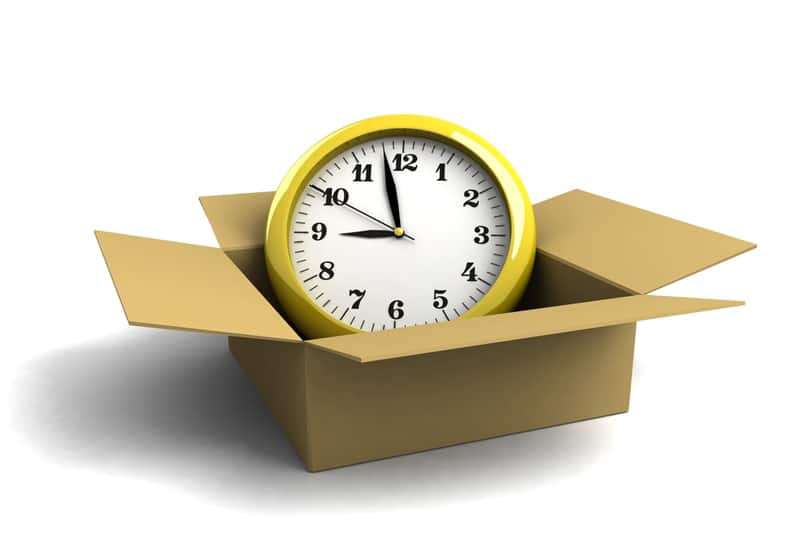
(Image: 3DProfi)
- Set a target. A target or goal gives you something to work toward. Better still, make it a challenge that is achievable at the same time.
- Set a deadline. Put a deadline to the goal you’ve set (tip #42). A deadline creates speed and action.
- Keep your emails in check. Emails are supposed to make things more effective, not bog you down. Make sure you are managing your emails well. Read: How To Manage Your Emails Effectively
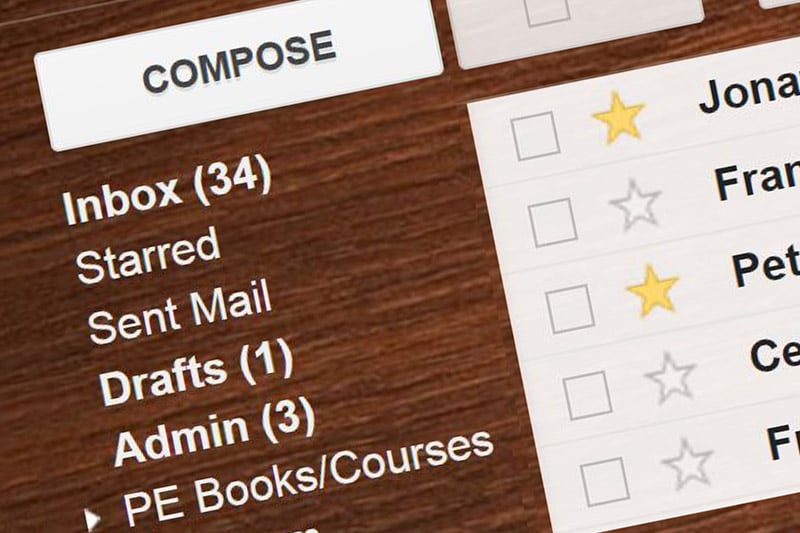
(Image: Personal Excellence)
- Plan your task. A blueprint is needed to build a building. Similarly, a good plan facilitates your work by quantum leaps. E.g. You want to create a large slide deck. Diving into the slides right away without planning out your content will lead to a jumble of ideas and a lot of eventual rework. Spend some time to create an outline, and you’ll find yourself more focused and productive.
- Be on time. Be on time as much as possible. This prevents your meetings from going off schedule and affecting the next things on the list. Similarly, end your meetings on time. When you approach your meetings with this mindset, you will be more focused and productive in each meeting. Read: How To Be On Time
- Visualize. Imagine you have finished the task. Feel that surge of euphoria. Now, ride on that wave of energy and use that to move your tasks into completion.
- Practice makes perfect. It takes 10,000 hours to become a master at what you do. Make sure you put in the due diligence in your work. The better you are at it, the more you can do in the same amount of time.
- Get a coach. A coach helps you uncover your blind spots, encourages you, and opens you up to new levels of performance you never thought of.
- Time out (Have a break/vacation). If your brain is completely fried or if you are physically tired, give yourself a time out. No point pushing yourself onward and moving millimeters forward when you can give yourself a good rest and get a boost after that. Else, you’ll just end up in a slump. For the same reason, if it’s been a while since you had a break, plan for a vacation. You’ll find yourself infinitely recharged when you return.
Get the manifesto version of this article: The Productivity Manifesto


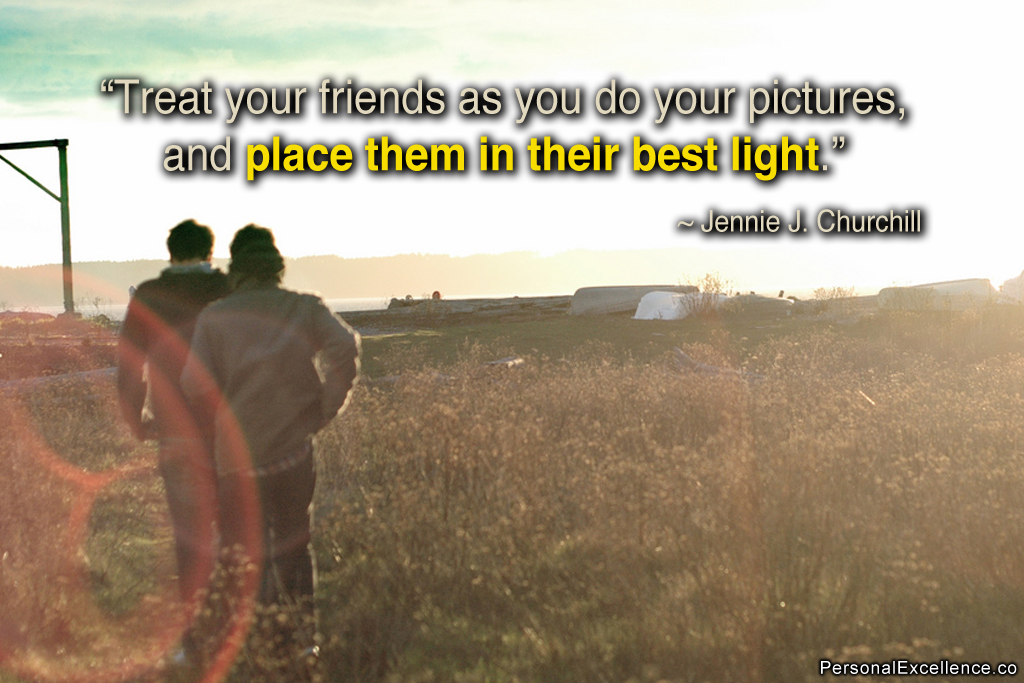


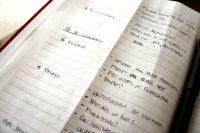
![Room Tour + Create Your Inspirational Workspace [Video]](https://personalexcellence.co/files/celestv-inspirational-workspace-200x133.jpg)

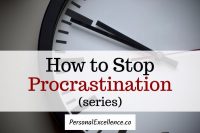
 Thanks for reading. If you like my free articles, join my private email list and get my latest updates and articles sent right to your inbox.
Thanks for reading. If you like my free articles, join my private email list and get my latest updates and articles sent right to your inbox.